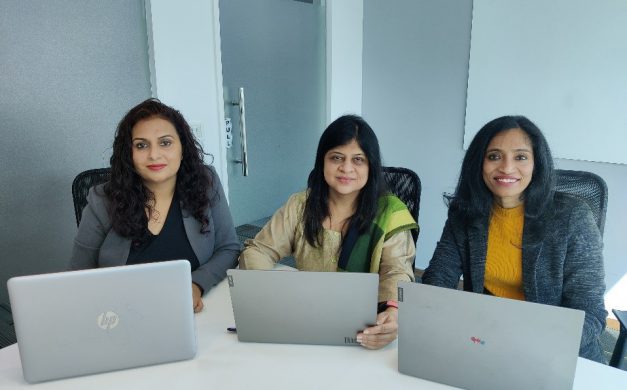Championing Women in the Workplace at All Levels
India is the second-fastest-growing economy in the world and the collective goal of our government, policymakers, companies, and people is to become an economic powerhouse producing 5 trillion-dollar economy by 2025. The McKinsey report further states that we can add up to $770 billion—more than 18%—to our GDP by 2025, simply by giving equal opportunities to women. This is indeed a huge occasion to boost India’s GDP by increasing the participation of women in the workforce, raising the number of hours worked, and including them in higher-productivity sectors like, for example, IT services. India’s economy also has the second-largest potential in the Asia-Pacific (APAC) region from improving gender parity. More than 70% of the potential GDP opportunity can come from increasing women’s participation in the labor force by 10 percentage points.
The Egon Zehnder Global Diversity Report 2020 shows that women currently hold 17 percent board positions in corporate India, however at the same time, women lag behind when it comes to leadership posts in company boards. Lack of inclusion of women in corporate jobs, especially leadership roles, has been a key concern in the past few years and has led to some mandates as well, like the compulsion for listed companies to have women directors.
At Gi Group India we challenge the status quo and we have 75% women leading the organization.
At Gi Group India Diversity can be seen at every level within our organization. We ensure that the Businesses consciously create that gender balance, especially at the managerial level, by giving opportunities to all who qualify. The pandemic has highlighted the need to engage with all employees in the aims and activities of the business. By fostering collaboration, the resulting inclusive culture will lead to greater productivity, helping organizations to grow and prosper.
Gi Group internally employs more than 7000 people globally. Of these, 72.5 percent are women. In Gi Group’s India workforce, women constitute 50 percent of the total workforce. If we take into consideration the percentage of women in managerial roles, Gi Group India has 60 per cent women in mid- and senior-leadership roles.
“At Gi Group, our mission is to provide Work as a means for individuals to fulfill themselves and we are committed to providing people opportunities that allow them to experience a future that abides by principles of equality, protection of personal dignity, and safety against all forms of discrimination. Helping women find and sustain meaningful employment opportunities is therefore only a natural extension of our corporate mission and goals,” says Sonal Arora, Country Manager, Gi Group India.
In the next major move by Gi Group India, we are in process of getting Women Back To Work. Since almost 40% of women in the corporate sector usually do not return to work after maternity or quit within six months after returning, Gi Group India is developing a program for such women to help them positively reintegrate at work. Our goal is to ensure they find the right balance between personal and work life.
“Intentional, deliberate action is still the most important strategy in increasing the proportion of women in senior leadership.. Transformational change does takes a long time.” says Maya Nair, Executive Director, Gi Group India.
“We have to have a significant change of approach within organizations to bring in more senior women leaders who will transform the business results. You have to be doing a range of things that encourage people to go for those senior roles essentially creating an in inclusive environment where diversity is truly recognized and encouraged.” Maya further expressed.
Upasana Raina, Director Human Resources, Gi Group India highlighted that “Women’s full and effective participation and leadership in all areas of life drives progress for everyone. When women lead, we see positive results. Creating a culture of inclusion is central to increasing diversity at all levels of an organization, and thereby growing gender parity within senior management. Moreover, the soft skills that women Leaders get to the Boardroom encourage collaboration, resilience, motivation, team work and strengthen Organization culture”
In the end, Sonal Arora would express that – “Let us break the stereotypes, One should not judge the person basis his or her journey, but basis their career performance and professional achievement. There has got to be a desire to proactively hear from everybody within the firm, no matter who they are or what their background is, and to show them that they’re respected.” These goals need to be hardwired into the business and aligned with its strategic aspirations









